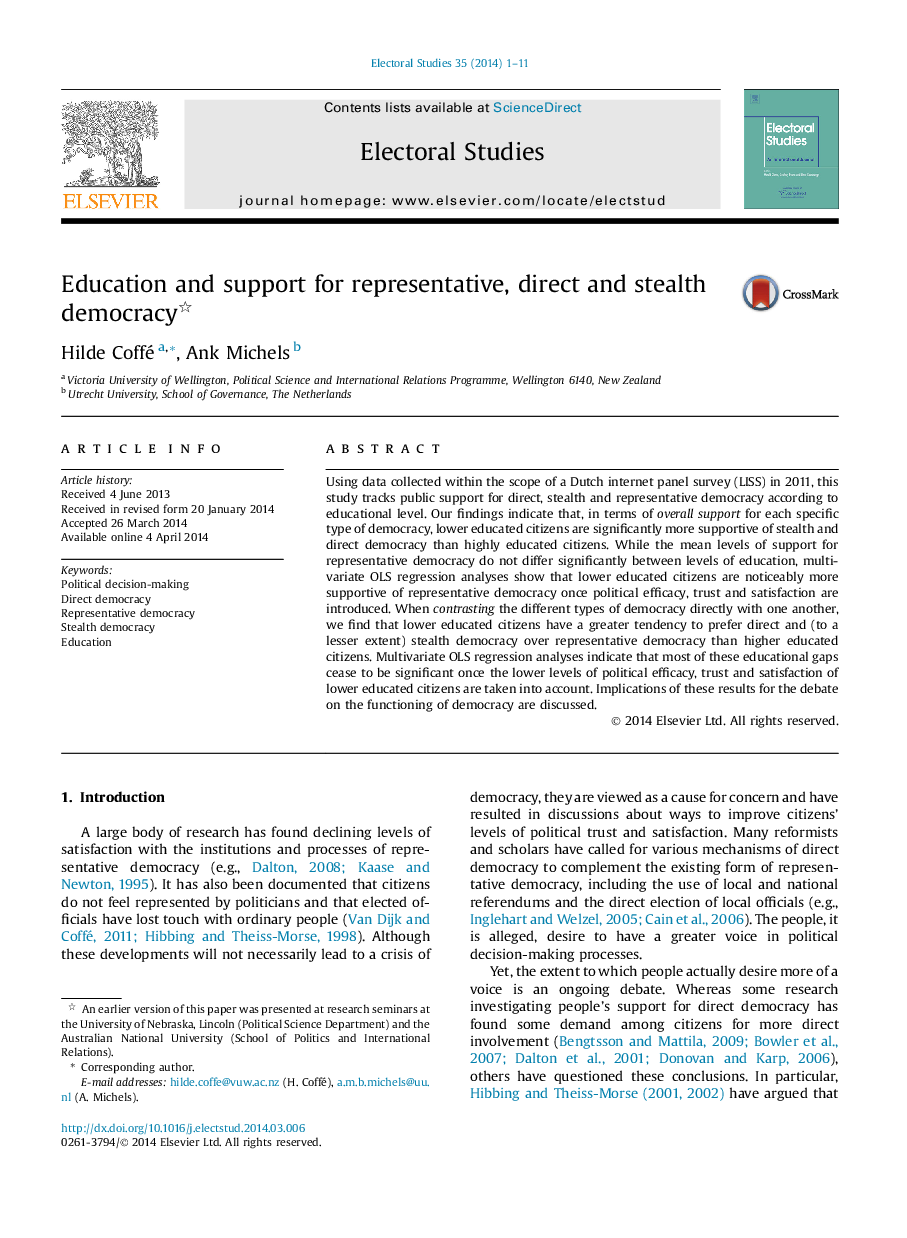| کد مقاله | کد نشریه | سال انتشار | مقاله انگلیسی | نسخه تمام متن |
|---|---|---|---|---|
| 1051768 | 1484958 | 2014 | 11 صفحه PDF | دانلود رایگان |
• We compare support for direct, stealth and representative democracy according to level of education.
• Lower educated citizens are generally more supportive of direct and stealth democracy.
• Political efficacy, trust and satisfaction explain most educational gaps.
Using data collected within the scope of a Dutch internet panel survey (LISS) in 2011, this study tracks public support for direct, stealth and representative democracy according to educational level. Our findings indicate that, in terms of overall support for each specific type of democracy, lower educated citizens are significantly more supportive of stealth and direct democracy than highly educated citizens. While the mean levels of support for representative democracy do not differ significantly between levels of education, multivariate OLS regression analyses show that lower educated citizens are noticeably more supportive of representative democracy once political efficacy, trust and satisfaction are introduced. When contrasting the different types of democracy directly with one another, we find that lower educated citizens have a greater tendency to prefer direct and (to a lesser extent) stealth democracy over representative democracy than higher educated citizens. Multivariate OLS regression analyses indicate that most of these educational gaps cease to be significant once the lower levels of political efficacy, trust and satisfaction of lower educated citizens are taken into account. Implications of these results for the debate on the functioning of democracy are discussed.
Journal: Electoral Studies - Volume 35, September 2014, Pages 1–11
